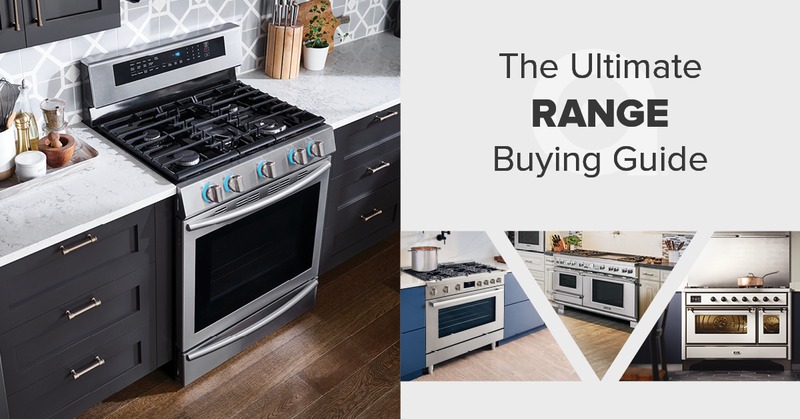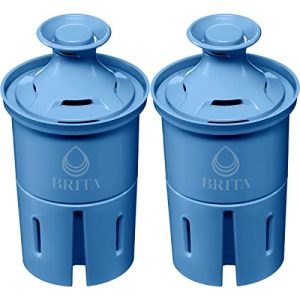Contents
- Determining Your Needs and Budget
- Researching Appliance Options
- Visiting Online and Physical Stores
- Seeking Recommendations and Expert Advice
- Considering Appliance Features
- Evaluating Appliance Reliability and Durability
- Calculating Long-Term Costs
- Understanding Appliance Installation and Compatibility
- Purchasing and Delivery
- Appliance Maintenance and Care
Are you in the market for new appliances, but feeling overwhelmed by the sheer number of options available? Look no further. “The Ultimate Guide to Buying Appliances” is here to help simplify the process and ensure that you make the best purchasing decisions for your home. Packed with expert advice, helpful tips, and comprehensive information, this guide is your go-to resource for all things appliances. From choosing the right size and style to understanding energy efficiency ratings, “The Ultimate Guide to Buying Appliances” has got you covered. Don’t let the appliance buying process stress you out – let this ultimate guide be your trusted companion.

Determining Your Needs and Budget
Assessing Your Current Appliances
Before you embark on the journey of buying new appliances, it’s important to assess the current state of your existing ones. Take a close look at each appliance in your home and evaluate its performance, age, and condition. Are they still functioning optimally, or do you frequently encounter issues? Assessing your current appliances will help you identify which ones need to be replaced and prioritize your purchases accordingly.
Identifying Your Appliance Needs
Not all appliances are essential for everyone. Take some time to think about which appliances are necessary for your lifestyle and daily routine. Consider factors such as the size of your household, your cooking habits, and your laundry needs. For example, if you host large family gatherings frequently, a spacious refrigerator and a double oven might be essential. Identifying your specific needs will ensure that you invest in appliances that will truly enhance your daily life.
Setting a Budget
Setting a budget is a crucial step in the appliance buying process. It helps you narrow down the options and prevents you from overspending. Begin by determining how much you can comfortably allocate towards your appliance purchases. Take into account your overall financial situation and consider any additional costs, such as installation and extended warranties. Once you have a budget in place, you can move on to the next step with confidence, knowing your financial boundaries.
Researching Appliance Options
Understanding Different Types of Appliances
The appliance market offers a wide array of choices, each with its own unique features and functions. Take the time to familiarize yourself with the different types of appliances available to you. Consider whether you need a gas or electric stove, a top or front-loading washing machine, or a standard or counter-depth refrigerator. Understanding the pros and cons of each type will help you make the right decision based on your specific needs and preferences.
Comparing Brands and Models
Once you have narrowed down the type of appliance you need, it’s time to delve into the world of brands and models. Different brands have varying reputations for quality, reliability, and customer service. Conduct thorough research on the brands you are considering and read customer reviews to gain insights into their performance and durability. Additionally, compare the different models within each brand to identify the features that are most important to you. This step will help you narrow down your choices and make a more informed decision.
Considering Energy Efficiency
In today’s environmentally conscious world, energy efficiency has become a significant factor in appliance purchasing decisions. Energy-efficient appliances not only help reduce your carbon footprint but also result in lower utility bills in the long run. Look for appliances with the ENERGY STAR label, which signifies that they meet strict energy efficiency guidelines set by the Environmental Protection Agency. By opting for energy-efficient appliances, you can contribute to a greener planet while saving money on your monthly bills.
Reading Reviews and Ratings
Customer reviews and ratings serve as valuable sources of information when researching appliances. Once you have selected a few models that meet your requirements, dig deeper into customer experiences. Read reviews on trusted websites and forums to get an idea of how well the appliances perform in real-life scenarios. Pay attention to both positive and negative feedback, and consider how specific issues mentioned might impact your personal needs. This research will give you a clearer picture of the appliances’ overall performance and user satisfaction.

Visiting Online and Physical Stores
Exploring Online Retailers
Shopping for appliances online offers convenience and the ability to compare prices and features from the comfort of your own home. Browse through reputable online retailers specializing in appliances and take note of the models that catch your eye. Be sure to read the product descriptions and specifications thoroughly and check for any available customer reviews. Online retailers often offer competitive prices and frequent promotions, making it an attractive option for savvy shoppers.
Finding Local Appliance Stores
While online shopping may be convenient, there is also value in visiting local appliance stores. These physical stores allow you to examine appliances up close, giving you a better sense of their size, build quality, and overall aesthetics. Additionally, knowledgeable salespeople are often available to provide personalized assistance and answer any questions you may have. Make a list of local appliance stores in your area and plan visits to explore the options available to you.
Comparing Prices and Promotions
Whether you choose to shop online or visit physical stores, comparing prices and promotions is essential to ensure you’re getting the best deal possible. Take note of the prices offered by different retailers for the models you are interested in. Look out for any ongoing promotions, discounts, or package deals that can help you save money. Remember that price isn’t the only factor to consider; take into account the overall value you’ll be getting for your investment.
Examining In-Store Display Models
When visiting physical stores, take advantage of the opportunity to examine the appliances on display. Get a feel for the build quality, test out the doors and drawers, and imagine how they would fit into your home. Take note of any specific features or details that stand out to you. Don’t hesitate to ask salespeople for demonstrations or more information about specific appliances. This hands-on approach will help you make a more informed decision and ensure that the appliances meet your expectations.
Seeking Recommendations and Expert Advice
Asking for Recommendations
Don’t underestimate the power of recommendations from friends, family, and neighbors. Reach out to those around you who have recently purchased appliances and ask about their experiences. Inquire about the brands and models they chose, as well as any issues or standout features they encountered. Their firsthand insights can provide valuable guidance and help you narrow down your options.
Consulting Appliance Specialists
If you’re looking for expert advice and in-depth knowledge about appliances, consider consulting appliance specialists. These professionals possess extensive knowledge about various brands and models, and they can offer recommendations tailored to your specific needs. Visit appliance showrooms or reach out to local retailers to ask if they have appliance specialists available for consultation. Their expertise can be instrumental in helping you make an informed decision.
Gathering Opinions from Online Communities
Online communities, forums, and social media groups dedicated to home appliances can serve as valuable platforms for gathering opinions and advice from a wide range of users. Join these communities and post inquiries about the appliances you are considering. Many members are happy to share their experiences and offer recommendations based on firsthand knowledge. However, as with any online research, take opinions with a grain of salt and consider multiple perspectives before making a final decision.
Considering Appliance Features
Assessing Essential Features
When selecting appliances, it’s important to prioritize the features that are essential for your needs and lifestyle. For a refrigerator, consider factors such as capacity, storage compartments, and temperature control options. For a washing machine, think about features like load capacity, spin speed, and different wash cycles. Make a list of must-have features for each appliance, keeping in mind your daily routines and preferences. This approach will help you narrow down your options and ensure you invest in appliances that truly meet your requirements.
Exploring Advanced Features
While essential features are the backbone of any appliance, exploring advanced features can elevate your cooking, cleaning, and laundry experiences. Advanced features can range from smart home connectivity and touch-screen controls to specialized cooking modes and steam-cleaning capabilities. Consider whether these extra features align with your lifestyle and add value to your daily tasks. Keep in mind that advanced features often come with a higher price tag, so make sure they are worth the additional investment for you.
Determining the Right Size and Capacity
Size and capacity are key considerations when purchasing appliances. Measure the available space you have in your kitchen or laundry area to ensure the new appliance will fit comfortably. For refrigerators and ovens, consider your cooking and storage needs and opt for sizes that provide ample room. Washing machines and dryers should have sufficient capacity to handle your laundry loads efficiently. Determining the right size and capacity will help prevent any inconvenience or potential damage during installation.
Evaluating Appliance Reliability and Durability
Researching Brand and Model Reliability
Appliances are long-term investments, so it’s crucial to choose brands and models known for their reliability and durability. Conduct thorough research on the reputation of different brands and models. Look for information on how well their appliances perform over time and whether they are prone to frequent breakdowns or malfunctions. Pay close attention to any recalls or known issues that may affect certain models. Opting for reputable brands with a track record of reliability will help ensure you’re investing in appliances that will stand the test of time.
Checking Warranty Details
Warranties provide peace of mind and protect you against any manufacturing defects or unexpected malfunctions. Before finalizing your purchase, carefully review the warranty details for each appliance you’re considering. Take note of the duration of the warranty and what it covers. Ideally, look for appliances with longer warranty periods, as this indicates the manufacturer’s confidence in their product’s quality. Understanding the warranty terms will help you make an informed decision and be prepared for any future repairs or replacements.
Assessing Build Quality and Materials
The build quality of an appliance directly affects its durability and longevity. While visiting physical stores or researching online, pay close attention to the materials used and the overall construction of the appliances you’re interested in. Look for sturdy materials and solid craftsmanship that indicate a higher build quality. Additionally, check for any signs of flimsy or cheap components that might compromise the appliance’s performance or durability. Assessing build quality will ensure you invest in appliances that are built to last.

Calculating Long-Term Costs
Considering Energy Efficiency and Operating Costs
When determining the long-term costs of owning an appliance, energy efficiency and operating costs play a significant role. Energy-efficient appliances not only save you money on monthly utility bills but also reduce your environmental impact. Look for appliances with high energy efficiency ratings to ensure long-term savings. Additionally, consider the operating costs associated with each appliance, such as water usage for washing machines and gas consumption for stoves. Choosing appliances with lower operating costs will help you save money throughout their lifespan.
Analyzing Maintenance and Repair Expenses
Appliances, like any other machines, require regular maintenance and occasional repairs. Take into account the maintenance requirements and costs associated with each appliance. Consider factors such as filter replacements, cleaning supplies, and any specialized maintenance procedures. Additionally, research the average repair costs for the brands and models you’re considering. Opting for appliances with a reputation for reliability and availability of affordable spare parts can help you keep maintenance and repair expenses in check.
Factoring in Potential Lifespan
The lifespan of an appliance directly impacts its long-term costs. While no appliance lasts forever, some brands and models have a reputation for outperforming others in terms of longevity. Research the average lifespan of the appliances on your shortlist, and take into account factors such as the manufacturer’s reputation, build quality, and customer reviews regarding durability. Investing in appliances with a longer potential lifespan may require a higher upfront cost but can save you money in the long run by reducing the frequency of replacements.
Understanding Appliance Installation and Compatibility
Checking Installation Requirements
Appliances often come with specific installation requirements that must be considered to ensure a successful setup. Before purchasing, thoroughly review the installation guidelines provided by the manufacturer. Take note of electrical, plumbing, or ventilation requirements. If your home does not meet these requirements, you may need to hire an electrician, plumber, or contractor to make necessary modifications. Understanding the installation requirements beforehand will help you avoid any surprises or extra costs during the installation process.
Ensuring Appliance Compatibility
In addition to installation requirements, it’s important to ensure that the appliance you choose is compatible with your existing setup. For example, if you’re purchasing a new dishwasher, make sure it fits within your kitchen cabinets and has the necessary plumbing connections. If you’re considering a new washer and dryer, verify that your laundry area has the required electrical outlets and ventilation. Taking compatibility into account beforehand will save you from the hassle of returning or exchanging an appliance that doesn’t fit or work with your current setup.
Hiring Professional Installation Services
While some appliances can be self-installed, it’s wise to hire professional installation services for certain appliances to ensure proper setup and avoid any safety hazards. Complex installations, such as gas stoves or built-in refrigerators, often require professional expertise. Additionally, professional installation services may be necessary to maintain warranty validity for some appliances. Research reputable installation services in your area and inquire about their rates and availability. Investing in professional installation will give you peace of mind knowing that your appliances are set up correctly and safely.

Purchasing and Delivery
Comparing Prices and Deals
Before making a final decision, take the time to compare prices and deals from different retailers. While price is not the only factor to consider, it’s important to ensure that you’re getting a competitive offer. Look out for any ongoing promotions, discounts, or bundle deals that can help you save money on your appliance purchases. Consider the overall value you’ll be getting based on the price, features, and warranty offered by each retailer.
Checking Return and Exchange Policies
Appliances are sizeable investments, and it’s important to be familiar with the return and exchange policies of the retailer you choose. Review the terms and conditions surrounding returns, exchanges, and refunds. Determine whether the retailer offers a grace period for returns if you’re not satisfied with your purchase. Familiarize yourself with any restocking fees or return shipping charges that may apply. Being aware of the return and exchange policies will ensure a seamless and hassle-free purchasing experience.
Arranging Delivery or Pickup
Once you’ve made your decision and completed your purchase, it’s time to arrange for the delivery or pickup of your new appliances. If you’re purchasing online, most retailers offer delivery services that bring the appliances directly to your doorstep. Confirm the delivery timeframe with the retailer and provide any necessary access or special instructions. If you prefer to pick up the appliances yourself, coordinate with the retailer to schedule a convenient time. Make sure to plan ahead and have the necessary transportation and help to safely transport and install the appliances in your home.
Appliance Maintenance and Care
Reading the User Manual
After your new appliances are installed, it’s essential to read the user manual thoroughly. The user manual provides important instructions on how to operate and maintain the appliance properly. Familiarize yourself with the control settings, safety precautions, and recommended cleaning methods. Following the guidelines outlined in the user manual will help you maximize the appliance’s performance, prolong its lifespan, and prevent any potential damage or accidents.
Following Regular Cleaning and Maintenance
Regular cleaning and maintenance are key to keeping your appliances in top shape. Each appliance has specific cleaning requirements, so refer to the user manual for cleaning instructions. Pay attention to tasks such as defrosting the freezer, descaling the coffee machine, and cleaning the lint trap of your dryer. Set up a maintenance schedule and stick to it to ensure that your appliances continue to perform optimally. Regular care and maintenance will not only extend the lifespan of your appliances but also contribute to their efficient operation.
Troubleshooting Common Issues
Even with regular maintenance, appliances may occasionally encounter issues. Familiarize yourself with common problems that may arise with your appliances and the troubleshooting steps to resolve them. Refer to the user manual for troubleshooting guidelines, or search for online resources provided by the manufacturer. Often, minor issues can be resolved with simple troubleshooting, saving you time and money on unnecessary repairs. By being proactive in addressing common issues, you can ensure the continued reliability and performance of your appliances.
By following these steps and considering each aspect of the appliance buying process, you’ll be well-prepared to make informed decisions and purchase appliances that perfectly meet your needs and budget. Remember to take your time, do thorough research, and prioritize your requirements to ensure a successful and satisfying appliance-buying experience. Happy appliance hunting!











